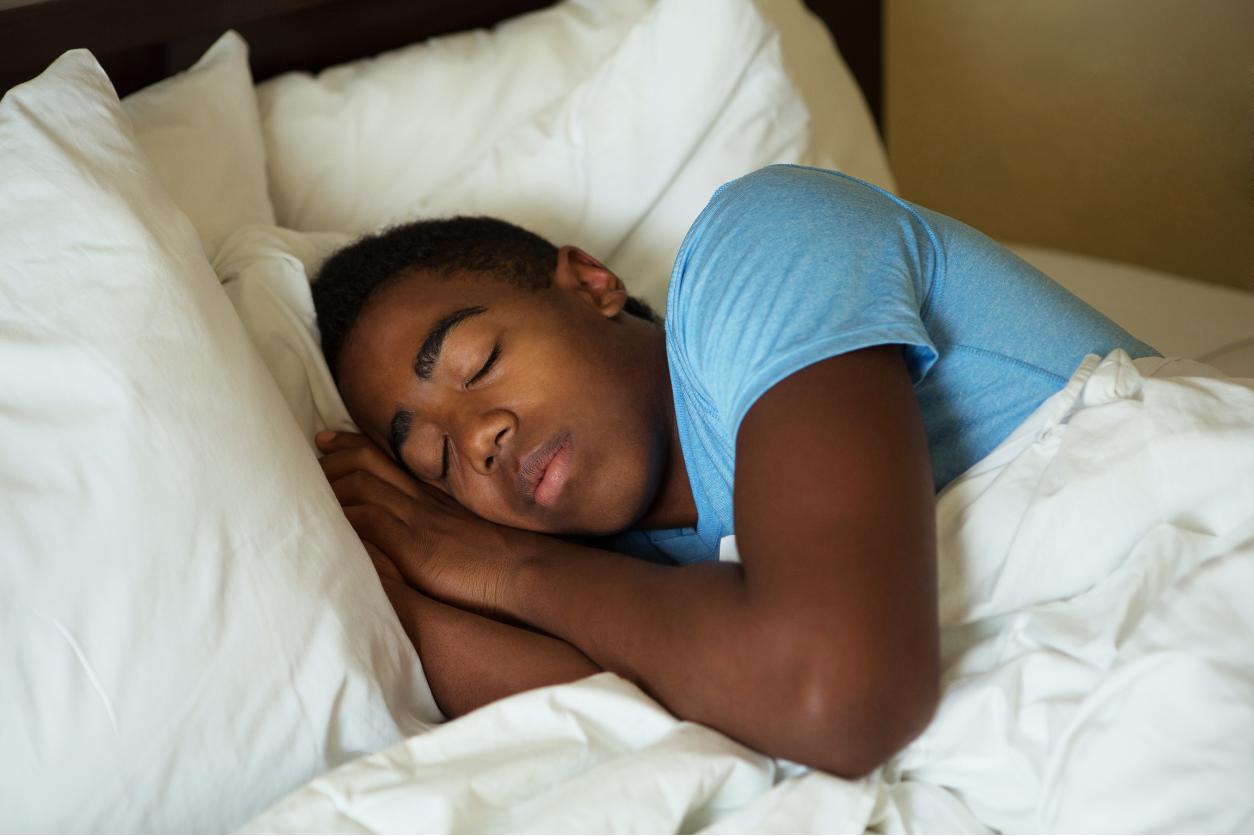Sleep is essential for your body and mind to rest and recharge. Getting enough sleep helps you stay focused, improves your mood, and gives you energy for the day ahead. During sleep, your body also grows and repairs itself, and your brain processes everything you’ve learned. Most teenagers need about 8–10 hours of sleep a night, but everyone is a little different.
Not getting enough sleep can make it harder to concentrate, affect your mood, and make you feel tired during the day. Over time, lack of sleep can even impact your physical and mental health, leading to problems like:
-
Trouble focusing in school or during activities.
-
Feeling more stressed or anxious.
-
Being more prone to colds or illness.
-
Stick to a routine: Try to go to bed and wake up at the same time every day, even on weekends.
-
Create a calming bedtime routine: Doing relaxing activities before bed, like reading or listening to calming music, can help you wind down.
-
Avoid screens before bed: The blue light from phones, tablets, and computers can make it harder to fall asleep. Try to avoid using them at least an hour before bed.
-
Limit caffeine: Drinks like coffee, tea, and fizzy drinks contain caffeine, which can keep you awake. Avoid them in the evening.
-
Make your bedroom a good place for sleep: Keep your room dark, quiet, and at a comfortable temperature to help you sleep better.
If you’re having trouble sleeping for more than a few weeks, it’s a good idea to talk to someone. Your GP, school nurse, or a trusted adult can help you figure out what’s going on and offer advice.
-
Teen Sleep Hub provides advice and information for young people about healthy sleep habits. Teens & Young People – Teen Sleep Hub.
-
You can also read about struggling to sleep on the Childline website – Problems sleeping – Childline.
